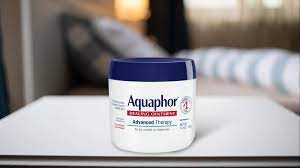Get most out of can you use aquaphor as lube

Welcome can you use aquaphor as lube to the slippery world of personal lubricants! Today, we’re diving into a popular household staple – Aquaphor. Known for its moisturizing properties and versatility, can this trusty ointment also double up as a lube in the bedroom? Let’s explore the ins and outs of using Aquaphor in a whole new way.
Can Aquaphor be used as a personal lubricant?
Have you ever wondered if Aquaphor, the trusty ointment in your medicine cabinet, could double as a personal lubricant? The answer might surprise you. Some people swear by using Aquaphor as lube due to its gentle and moisturizing properties. Its thick consistency can provide lasting lubrication during intimate moments.
However, before reaching for that familiar blue tube, it’s important to consider both the pros and cons. On the plus side, Aquaphor is fragrance-free and generally safe for sensitive skin. It can also be convenient to have a multi-purpose product on hand. Yet, some may find its texture too heavy or greasy for their liking.
If you do decide to give Aquaphor a try in the bedroom, make sure to apply a small amount first and test it out on a small area of skin to ensure there are no adverse reactions. Remember that everyone’s body is different, so what works for one person may not work for another.
In the end, whether or not Aquaphor is suitable as a personal lubricant will depend on your preferences and individual needs.
Pros and cons of using Aquaphor as lube
When considering using Aquaphor as a lubricant, there are both pros and cons to take into account. On the positive side, Aquaphor is known for its moisturizing properties and can provide long-lasting lubrication during intimate moments. It is also gentle on the skin and unlikely to cause irritation or allergic reactions in most people.
However, there are some drawbacks to using Aquaphor as lube. One potential downside is that it may not be compatible with certain types of condoms or sex toys, which could affect their effectiveness or longevity. Additionally, since Aquaphor is oil-based, it may not easily wash off with water alone and could leave behind a residue that some individuals may find inconvenient.
The decision to use Aquaphor as a lubricant ultimately depends on personal preferences and individual circumstances.
How to properly use Aquaphor as lube
When using Aquaphor as a lubricant, it’s important to apply a small amount initially. Start by dispensing a pea-sized drop onto your fingertips and gently massage it onto the desired area. Allow some time for the Aquaphor to warm up and spread evenly before proceeding.
Remember that less is more when it comes to using Aquaphor as lube; applying too much can lead to an uncomfortable greasy feeling. Reapply as needed during intimate moments to maintain smoothness and reduce friction.
Avoid mixing Aquaphor with other lubricants or oils, as this may alter its composition and effectiveness. It’s best used on its own for optimal results. Additionally, ensure that the product is compatible with any condoms or sex toys you plan on using.
After use, clean the area thoroughly with mild soap and water to remove any residue of Aquaphor. Proper hygiene is essential for maintaining overall health while using this product as a lubricant.
Alternative lubricants to consider
When it comes to alternative lubricants, there are various options to consider if Aquaphor doesn’t quite fit the bill for you. Coconut oil is a popular choice for its natural moisturizing properties and slick texture. It’s important to note that coconut oil should not be used with latex condoms as it can weaken them.
Another option to explore is silicone-based lubricants, which provide long-lasting glide without the need for frequent reapplication. Just remember that silicone lubes may not be compatible with silicone sex toys.
If you’re looking for a water-based alternative, glycerin-free lubricants are gentle on sensitive skin and less likely to cause irritation during intimate moments. Some people also prefer aloe vera gel as a soothing and hydrating option.
Finding the right lubricant is about personal preference and what works best for you and your partner. Don’t be afraid to experiment with different types until you find one that enhances your sexual experience.
Precautions and potential side effects of using Aquaphor as lube
Before you jump into using Aquaphor as a lubricant, it’s essential to be aware of some precautions and potential side effects. While Aquaphor is generally considered safe for external use, it may not be suitable for everyone when used as a personal lubricant.
One precaution to keep in mind is that Aquaphor is oil-based, which can weaken latex condoms and increase the risk of breakage. If you’re relying on condoms for protection against STIs or pregnancy, consider choosing a water-based lubricant instead.
Additionally, some individuals may experience skin irritation or allergic reactions when using Aquaphor as lube. It’s always wise to do a patch test on a small area of skin before applying it to more sensitive areas like the genital region.
If you notice any discomfort, redness, itching, or swelling after using Aquaphor as lube, discontinue use immediately and consult with your healthcare provider. They can provide guidance on alternative products that may be better suited for your needs.




